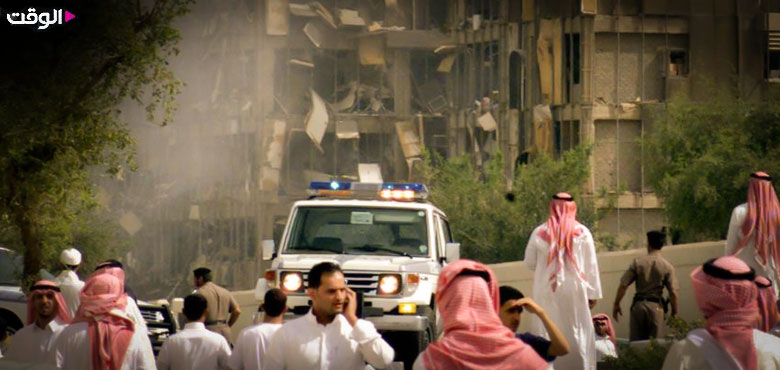Alwaght- After two weeks of silence, Saudi Arabia’s interior ministry finally confirmed that two blasts took place in the resort city of Jeddah west of the Arab kingdom on June 7. Mansour al-Turki, the spokesman to the Saudi interior ministry, in an interview with the Associated Press said that the security forces were investigating the incident.
While the Saudi officials imposed a ban on media reports on the blasts, the US consulate in the city published a statement announcing the incident and warning their citizens to take security considerations. Now after two weeks after the US security warning, Saudi Arabian officials make a disclosure about the happening. What is the nature of the attacks and why did Riyadh choose to be silent and cover it up?
The nature of the attacks
If we seek to track the security status inside Saudi Arabia since 2011, we cannot find major terrorist attacks as effective as those conducted by extremist forces in other regional states. That is mainly because the oil-rich monarchy itself is the bastion of extremist Salafi and exporter of terrorism discourse, not its target. Except for attacks in 2015 on Shiite-majority regions of the country, mainly the blasts targeting Shiite mosque in Qatif region that left 21 dead and 80 wounded, since the Arab uprisings that ushered in the Islamic awakening era the attacks in Saudi Arabia take place occasionally to clear the Saudi leaders of assistance to global terrorism. In many cases, the attacks are with no fatalities, like the 2018 Al-Qasim attack in which all of the 3 armed men were killed in clashes with the security forces. In 2017, two attackers were shot dead by police forces without any fatalities to the civilians or police. The last attack before Jeddah incident was in late April targeting a police station in Az Zulfi city, north of the capital Riyadh. The ISIS terrorist group claimed the responsibility for the attack. Four of the gunmen were killed without and only three officers were reportedly injured. Such attacks very fast spread through official news outlets and social media accounts. This may direct to the notion that the Jeddah attacks have been out of control.
Bin Salman opponents and crackdowns
After Saudi Arabia announced the news about the car blasts, the interior ministry’s spokesman admitted that clandestine personal differences may have motivated the attacks. To get an understanding about why Saudi Arabia exercised silence and censored the news around the incident, we should take into account a set of points.
1. The Crown Prince Mohammed bin Salman over the past two years introduced to the nation a set of sham economic and social reforms in a bid to win the support of the allied Western powers and strengthen his position at home among the public. However, his controversial steps still continue to trigger public anger and discontent. Al-Khalij Al-Jadid new outlet, building its report on results of an investigation, suggested that bin Salman’s economic reforms only arouse the ire of the Saudi youths who account for 60 percent of the nation’s population. The website adds that the Vision 2030, an economic roadmap unveiled by the crown prince in 2016 and seeking to cut reliance on oil income, has never worked to cut the unemployment rate that stands at 30 percent. Saudi Arabia has $52 billion budget deficit and has so far failed to find a way to reduce it.
2. In February, Prince Mohammed claimed atop Kaaba, the holy Muslim site, stirring fury online. Rai Al-Yaum newspaper in a report said that in every step he takes bin Salman proves that he is unmatched in taking controversial and even provocative decisions.
3. The Guardian newspaper after his father's, King Salman's, visit to Egypt in February wrote that the two are severely divided. Brookings Institution and Chatham House, both prominent Western think tanks, even talked about a possible coup against the father.
4. Following the assassination of Jamal Khashoggi, the vocal critic of Prince Mohammed, Al-Quds Al-Arabi newspaper reported that a number of royals asked the king not to give him the post of the crown prince and cut his son’s powers.
So, with the royal dissent mixed with public anger, the situation can move out of bin Salman’s control, with the least outcome being a coup. After all, many of the clerics now are unhappy with the son’s actions and fast the opposition to him spiral public and legitimate. So, publishing the news upon its happening could drive the opposition even more resolved, especially that a couple of years ago attacks were carried out near the foreign embassies zone in the city in the US Independence Day.
With regard to the closeness of the US Independence Day on July 4, a set of motivations of repressed protests can find their way to the streets. That is one reason Saudi Arabia choose censorship surrounding the incident.
The interesting point is that the attack happened at a time close to the time at which last year bin Salman was shot and injured near Khuzam Palace in Jeddah, signaling that there are yet worries about his replacing of the king.
There is also a crackdown on the opposite voices. Sheikh Salman al-Ouda, a neo-Salafi preacher, is one among many. There are public and rights groups’ voices asking for his freedom. The Middle East Eye news website in a report in July said that the government plans to execute him and two other inmates named Sheikh Awadh al-Qarani and Ali al-Omari after the holy month of Ramadan. Before Ramadan, Riyadh had executed 37 Shiite citizens. The decision to execute al-Ouda came as the kingdom was encouraged by the poor global reaction to the mass execution. This supports the theory that al-Ouda supporters were behind the attacks. Continued repression consequences are expected to show themselves in the future in various forms.



























